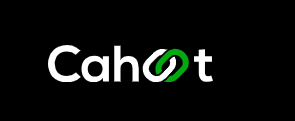ShipStation vs Cahoot
One tool still needs you to write rules. The other ships on its own.
ShipStation: Brittle rules
cost ↑Endless “IF / THEN / AND” rules, constant tweaks, surprise exceptions, manual overrides.
Cahoot: Shipping on autopilot
SLA‑safe • cost‑awareCahoot watches your orders and picks the right label automatically—no rules to maintain.
96%
Labels printed with zero rules (30 days)
100%
Cutoff rescues last week
93%
Exceptions auto‑fixed before anyone looks
Why the old way breaks (for 2026 ops)

Too many rules to keep straight
Every channel and warehouse needs different settings. One change means changing many rules.

Out-of-date carrier choices
Service choices don’t react to outages or rate changes.

Human babysitting
Bad addresses, DIM errors, and missed cutoffs stall orders and flood support.
Prefer to see examples? Jump to 30‑sec explainers.
The New Way

Hits promise dates
Auto-chooses the best warehouse if a cutoff is at risk.

Right box, best rate
Picks the box and service that delivers on time for less.

Fixes problems early
Corrects bad addresses and reprints labels so waves keep moving.

Routes updates to people
Sends the right message to the right person by Slack/SMS/email.
Concrete comparison: Cahoot vs ShipStation
| Capability | ShipStation (Old Way) | Cahoot (New Way) | Why it matters | |
|---|---|---|---|---|
 |
Warehouse selection | Manual rules per location & channel | Auto node selection from policies & cutoffs | Lower zones, hit SLAs |
 |
Cartonization | Manual box choice; presets | AI box fit per order; learns | Avoid DIM surcharges |
 |
Rate selection | Static mappings & rules | Cheapest SLA‑safe rate | Spend less, fewer reprints |
 |
Multi‑channel setup | Presets/profiles per channel | Unified decision graph | Lower upkeep, fewer mistakes |
 |
EDD / promise | Often via channel/3rd‑party | API EDD from nodes & lanes | Fewer WISMO tickets |
 |
Exceptions | Manual triage of errors | Auto‑fix & reprint | Waves keep moving |
 |
Notifications | Log in & check statuses | Role‑routed Slack/SMS/email | Right person, right time |
How shipping costs add up
Late shipments → refunds
Cutoff misses cascade into refunds/chargebacks. Guardian auto‑reroutes to hit promises.
Wrong box → overpay
AI cartonization trims DIM fees and prevents rework.
Manual triage → labor drag
Exception Sweeper fixes address/route issues before they stall the line.
Training overhead
Policies stay stable; no rule sprawl across warehouses.
After‑hours toil
Switchboard routes action/inaction with context; fewer late‑night check‑ins.
Reprints & rescans
Right label the first time; less floor friction.
Trusted by established merchants






Deep dives & real examples
Short explainers with videos and walkthroughs. These pages link back here.
Pick the right warehouse automatically
How Cahoot picks the right node against cutoffs and SLAs.
Right box every time
Right box every time, lower DIM and surcharges.
Cheapest label that still arrives on time
Cheapest label that still hits the promise date.
Fix bad addresses before they block a wave
Address issues and reprint without stopping the wave.
Clear delivery dates at checkout
Set clear delivery expectations; cut WISMO.
Faster picking, better oversight
Throughput for busy days; monitor performance.
FAQ
Does Cahoot replace rules entirely?
We use policies (SLA, cost ceilings, service blocks) and real‑time signals to compile decisions. Many customers operate with zero manual rules.
How accurate are your delivery promises (EDD)?
EDD is generated from your nodes, cutoffs, and lane performance. It’s designed to be realistic to reduce WISMO tickets.
What happens during migration?
White‑glove onboarding: we import channels, map inventory & policies, and run a side‑by‑side comparison before you flip the switch.
Who is Cahoot for?
Established ecommerce brands shipping at volume (typically 20k+ orders/month) that want automation and fewer tools to babysit.
Ready to ship the new way?
See how much work Cahoot can remove in your first week.



